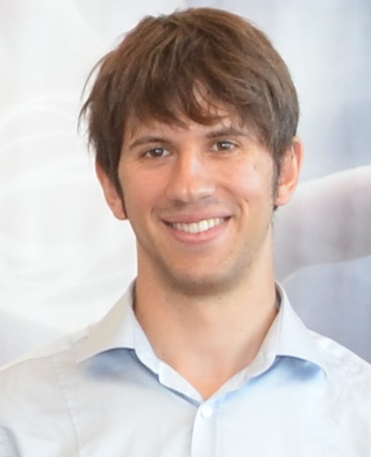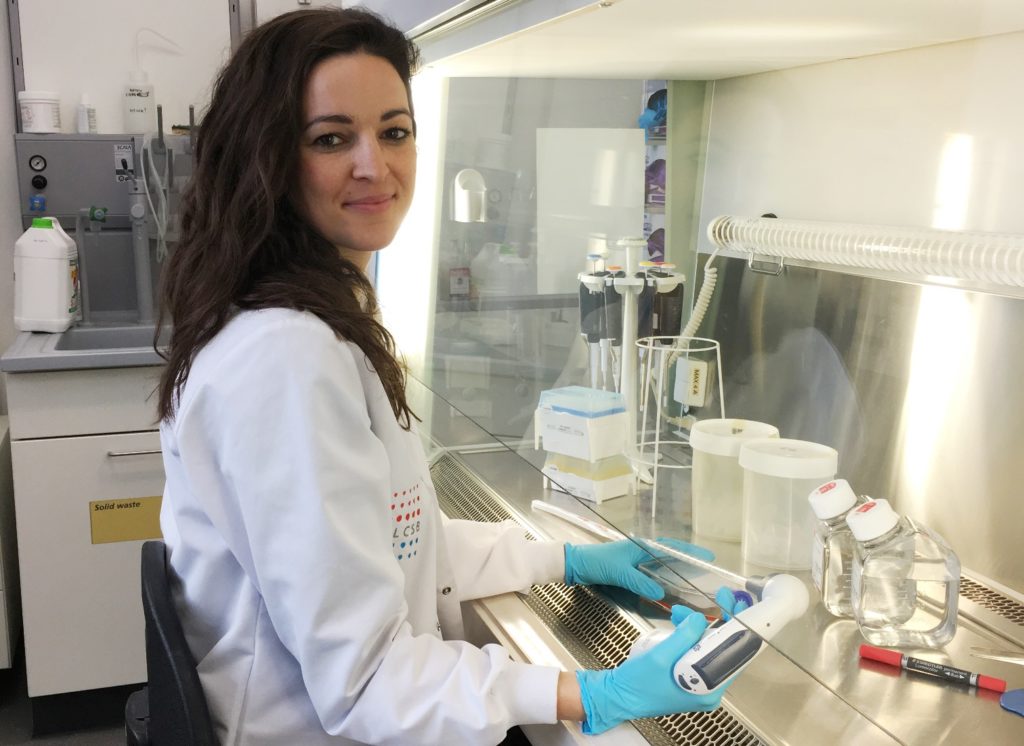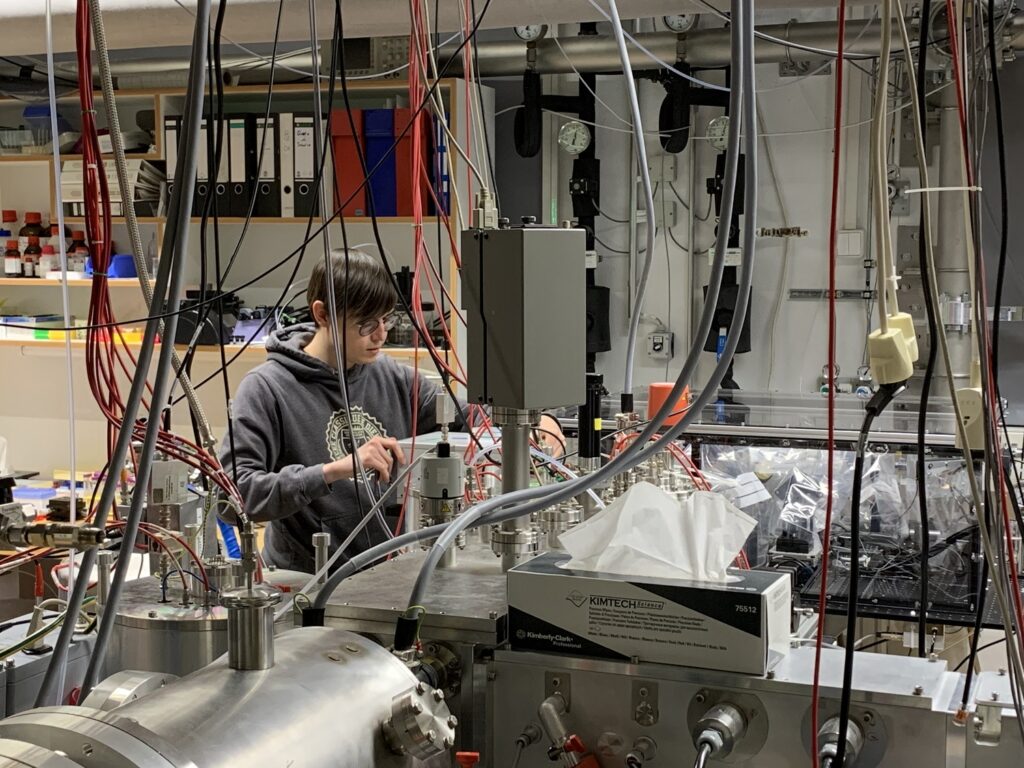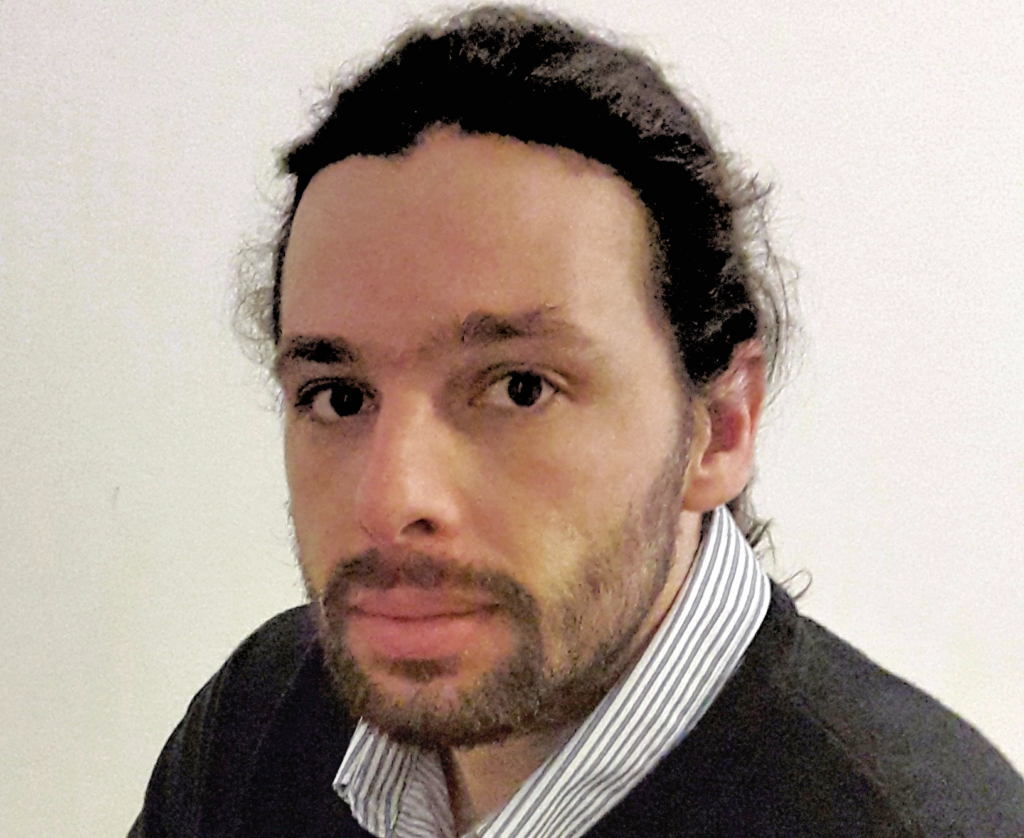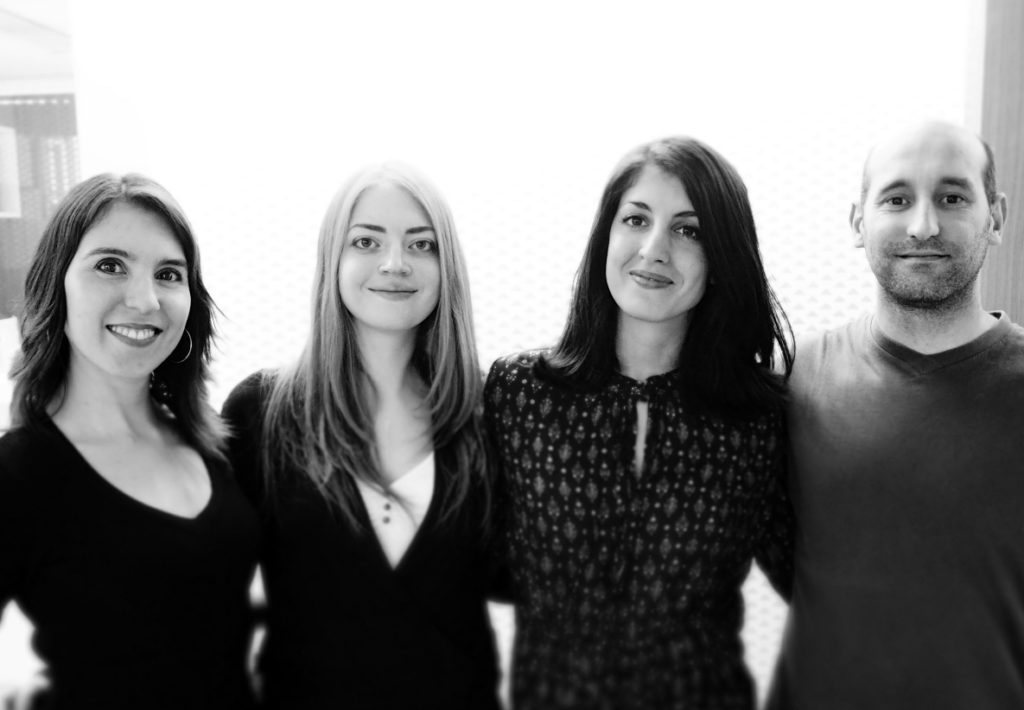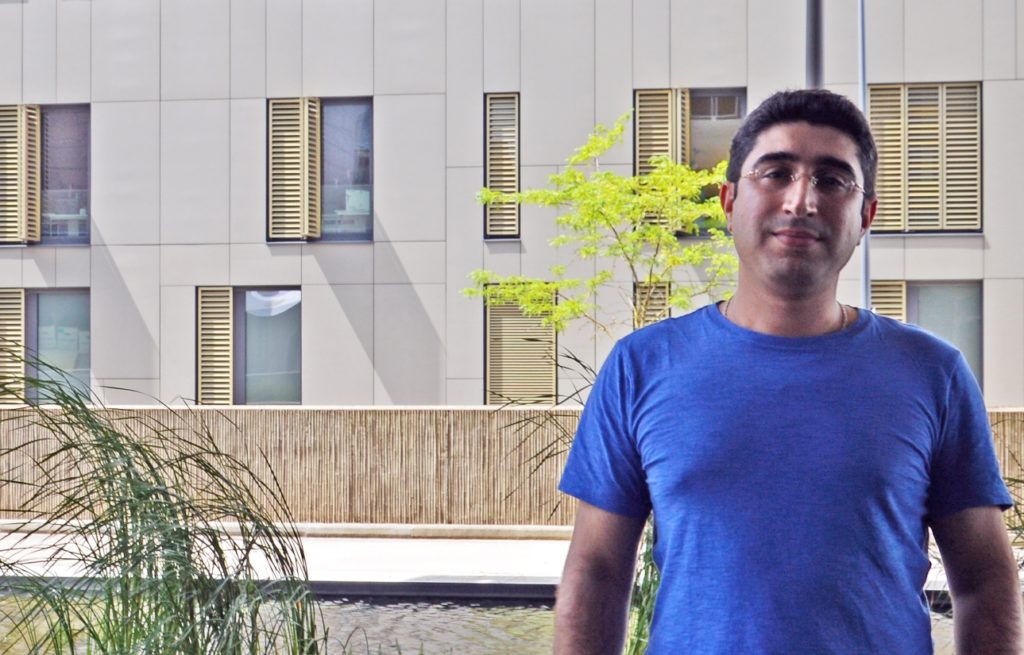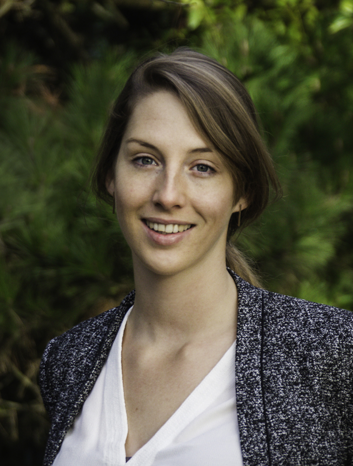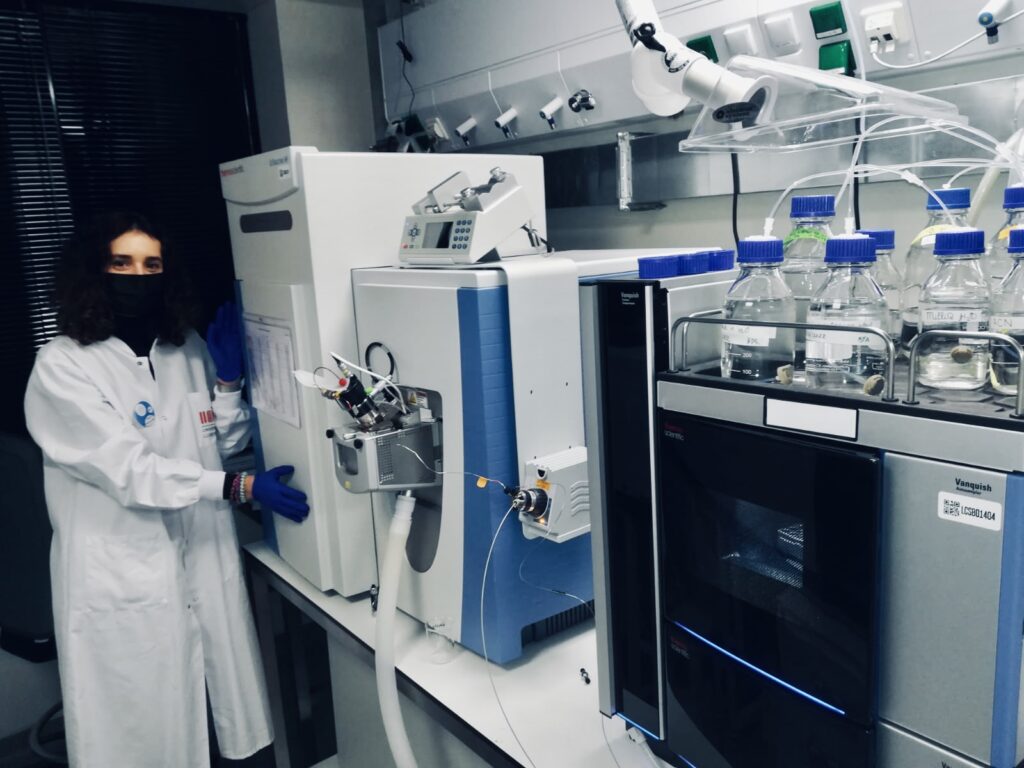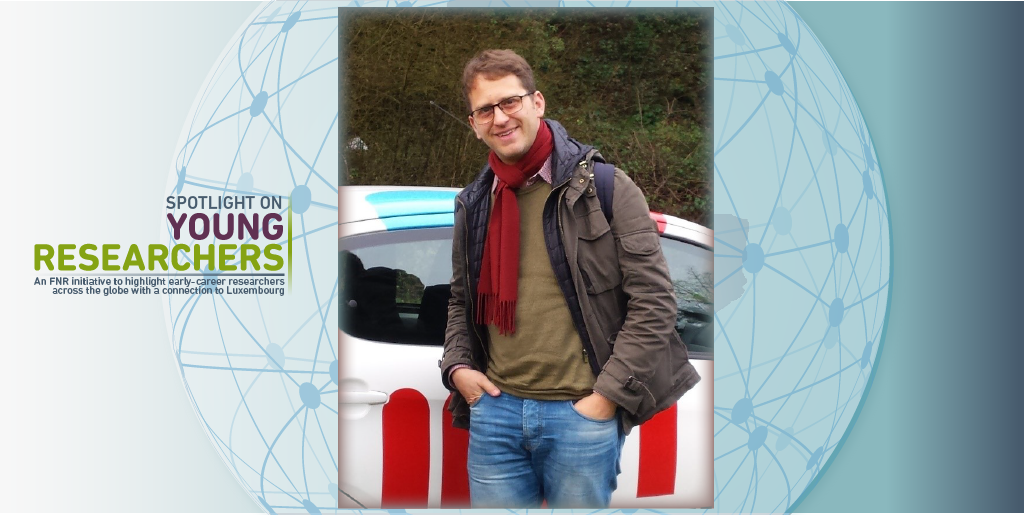Luxembourg nationals Max Greisen and Véronique Cornu have many things in common: They are both educated in the field of psychology, they are both PhD researchers at the University of Luxembourg – and they both work with language-free approaches to early mathematical development of multilingual children. Max develops and implements animations that help assess early numerical competencies, while Véronique develops training methods to help overcome language barriers in early math education.
Being multilingual can bring challenges to young children, for example trouble comprehending mathematics – creating a need for educational tools free of language restrictions. Pre-school children’s mathematical abilities are a strong predictor of how well they will do in maths later in their education. Max Greisen explains that “research has shown that language and mathematics performance are not independent”, and that there is no clear consensus on whether it is more effective to measure maths performance in the language the children are instructed in, or in their mother tongue.
Currently, around two thirds of the children entering the Luxembourgish school system are non-native Luxembourgish speakers, which could have negative implications for their mathematical understanding, as Véronique Cornu explains: “Second language learners are at high risk to lag behind in mathematics, even prior to formal schooling”.
This creates a need not only for a language-free assessment options in the screening for learning disabilities, such as dyscalculia[1] – which affects around 5-7% of the general population – but equally for training methods where children can build a good numerical foundation – free of language restrictions.
Removing language barriers from the equation
This is exactly what Luxembourg nationals Max Greisen and Véronique Cornu are working on – from different angles. Max, whose academic background is in neuropsychology, explains his work, which takes place in the University’s Cognitive Science and Assessment group (COSA):
“The focus of my research lies in the development of a language free assessment tool that aims to screen for dyscalculia at a very early age, without relying on written or spoken instructions that are widespread in commonly used diagnostic tools. Instead, I am developing video/animation-based instructions, implemented on tablet computers.”
“A first pilot study has shown encouraging results: Video instructions seem to transmit content at least as good as traditional text instructions while leaving the choice of inner language to the participant”, Max adds.
Max explains that a tool of this kind would be an effective tool in assessing numerical competencies in a multilingual setting – where traditional assessment tools are often impeded by language restrictions.
A training method free of languages
While Max’s focus lies more on developing language-free tools to assess learning disabilities, with the potential to also assess children’s ability to understand numbers, Véronique’s focus is on using language-free training to overcome language barriers. Véronique, a trained psychologist, elaborates:
“The aim of my PhD project is to develop training which overcomes this language barrier in early math instruction. This is done by using primarily language free material (i.e. tablet-computer technology), allowing each child to make use of that material, independently from his/her language background.
“I have already implemented this program in five pre-school classrooms and the results are very promising. The feedback provided by the teachers in the field was also very positive and they have expressed their wish to receive the training material after the scientific evaluation is complete. Some teachers even said that they would like to integrate the material into their teaching routine and/or as remediation for children with deficits.
“Taking these together, the accomplishment of my PhD project should thus lead to an innovative training program, which is scientifically validated, taking the characteristics of a multilingual student population into account, and which is well accepted by teachers.”
Luxembourg: an exceptional multilingual laboratory setting
Both Max and Véronique returned to Luxembourg for their PhD studies, Max had been in Belgium for his studies for the previous years, and explains how he kept an eye on the development of the University of Luxembourg while he was abroad, and how pleased he was that he could return to do his PhD in his home country:
“I was very happy when I was being offered to pursue a PhD degree in my home country, allowing me to provide my stone to the constantly growing wall that is research at the University of Luxembourg. Indeed, the multilingual setting and the location at the centre of Europe, both politically and geographically, turn Luxembourg into a very attractive research destination for both local and international students.”
Véronique completed her Bachelor studies at the University of Luxembourg, before embarking on her Masters at a university in Germany. Véronique explains how she also made a decision to conduct her PhD project in Luxembourg:
“This choice was primarily informed by my positive experiences at this University as an undergraduate student. Furthermore, it provides good supervision for PhD students and the necessary infrastructure and equipment for the accomplishment of a PhD project.”
Max and Véronique are also both in agreement that Luxembourg’s multiple languages provides an ideal setting for their research – Véronique specifies that the Luxembourgish school setting “offers a challenging but interesting opportunity to study children’s cognition in a multilingual context”, with Max also pointing out the benefits of the linguistic diversity:
“Its unique linguistic situation in both schools and society turns Luxembourg into a small but exceptional living laboratory for internationally relevant questions in the field of cognition and learning in multilingual settings.”
The motivation
Why did Max and Véronique choose the path of research? And what are their goals? Find out below:
[1] severe difficulty in making simple mathematical calculations, due to cerebral disease or injury, source
Véronique Cornu, 3rd year PhD
Research location: LUCET (Luxembourg Centre for Educational Testing) at University of Luxembourg

Why did you become a researcher?
“Since the very beginning of my studies in psychology, I was fascinated to learn about the developing brain and to deepen my knowledge in this domain. As a student, I had the opportunity to gain important experience as a student assistant in different research institutes, confirming my wish to become a researcher and actively contribute to the study of the human mind.”
What would you like to achieve during your career as a researcher?
“As a trained psychologist and researcher in developmental psychology, my major aim is to develop and scientifically validate interventions that are efficient to foster and support humans’ cognitive development. The focus of my PhD project lies on the pre-school years, but as a Master student I was specifically interested in cognitive interventions in older adults. Independent of the age group I am working with, my personal goal is to use scientific methodology to develop efficient training and intervention programs.”
Max Greisen, 2nd year AFR PhD

Research location: Cognitive Science and Assessment group (COSA) at University of Luxembourg
Why did you become a researcher?
“There are many good reasons to become a researcher; personally, three main factors influenced my decision to pursue a career in academia.
“First, research provides a highly stimulating context, with new challenges and opportunities to learn daily. In other words, research is all but boring, rare are the days you will find yourself doing the exact same thing than the day before.
“Second, research provides a work setting in which you are given relative independence over your work and schedules as long as you are meeting important deadlines and milestones.
“Last but not least, doing research is a way of nurturing my intellectual curiosity, as it provides me with the right questions and the necessary tools to answer them professionally.”
What would you like to achieve during your career as a researcher?
“A part from my education as a neuropsychologist, computers and technology have been a great personal passion from the day my parents hooked a Nintendo to our TV, back in a time where tablet computers were the product of science-fiction.
“Many years later, tablet computers now being ubiquitous, I was lucky enough to be offered to work on my current research project which allows me to combine profession and passion in a meaningful way. Later in my career, I would like to use the experience and information gathered from my research to continue developing scientifically validated psycho-educational software as it provides new and entertaining ways for children to engage with and learn from content.”
Published 20 July 2017
About Spotlight on Young Researchers
Spotlight on Young Researchers is an FNR initiative to highlight early career researchers across the world who have a connection to Luxembourg. This article is the 20th in a series of around 25 articles, which will be published on a weekly basis. You can see more articles below as and when they are published.



